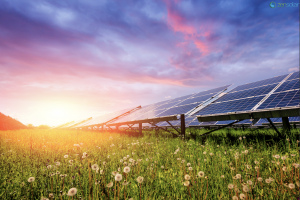Summertime and Sunshine
As we move into May, summertime is upon us.
Owners of a solar system or those considering going solar must understand how seasonality plays a role in the output of any system.
Harnessing the energy of the sun to power your home has many factors. ZenSolar is here to help you understand the role seasonality plays in factors like:
- Time of Year
- Time of Day
- Weather Conditions
Time of Year: Summer
The season of sunshine, air conditioning, summer break, and time spent at home with friends and family. According to many studies, +30% of Americans consider this season to be their favorite.
But, even this season has its drawbacks. With many days hitting triple-digit weather, summer months often result in the highest electricity bill of the year. When paired with scientific research around global warming, it’s fair to say this is a trend that will continue.
Leveraging a clean, inexhaustible energy source like solar is a great way to mitigate ever-increasing energy costs so you can relax and enjoy your time at home.
Time of Day: Summer
The longer days of summer allow us to generate more solar power which can be stored and used on days that are shorter when less energy may be generated. While longer days may mean more energy, they can also correspond with more heat.
Heat in excess of 95 degrees Fahrenheit can impact the overall performance of your solar panels. We call this the pesky problem of power conversion. As the planet gets warmer, increases in temperature should be considered when making a decision on solar panels.
According to a 2020 report on the state of renewable energy, solar photovoltaic technology will continue to boom and now accounts for more than 55% of all renewable-power capacity.
Weather Conditions: Summer
While Fall and Winter provide plenty of stormy weather and cloud cover, these conditions can have a significant impact on solar energy output. When solar panels are exposed to less sunlight, they in turn, produce less energy. This doesn’t mean your lights will turn off on cloudy days, but you may need to rely on more power from a public grid than during a clear day.
As we’ve discussed throughout this article, summer months regularly result in clear skies, longer days, and more energy production. Over time, solar energy can offset cooling costs during a season when we are more likely to be at home with family and friends running our air conditioning units.
Trends like global warming will likely make summer electricity bills even more cost-prohibitive.
With a solar energy system, you can produce power all year round. This means relying less on the utility and more on a large energy share from a clean, inexhaustible source.



